-
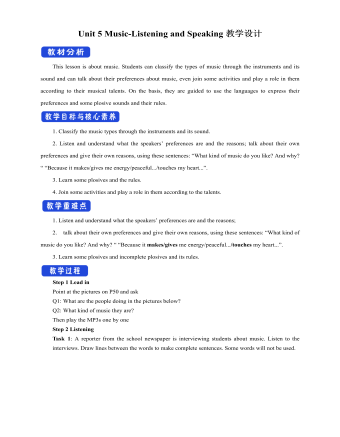
新人教版高中英语必修2Unit 5 Music-Listening and Speaking教案
This lesson is about music. Students can classify the types of music through the instruments and its sound and can talk about their preferences about music, even join some activities and play a role in them according to their musical talents. On the basis, they are guided to use the languages to express their preferences and some plosive sounds and their rules.1. Classify the music types through the instruments and its sound.2. Listen and understand what the speakers’ preferences are and the reasons; talk about their own preferences and give their own reasons, using these sentences: “What kind of music do you like? And why? “ “Because it makes/gives me energy/peaceful.../touches my heart...”.3. Learn some plosives and the rules.4. Join some activities and play a role in them according to the talents. 1. Listen and understand what the speakers’ preferences are and the reasons;2. talk about their own preferences and give their own reasons, using these sentences: “What kind of music do you like? And why? “ “Because it makes/gives me energy/peaceful.../touches my heart...”.3. Learn some plosives and incomplete plosives and its rules.Step 1 Lead inPoint at the pictures on P50 and ask Q1: What are the people doing in the pictures below?Q2: What kind of music they are?Then play the MP3s one by oneStep 2 ListeningTask 1: A reporter from the school newspaper is interviewing students about music. Listen to the interviews. Draw lines between the words to make complete sentences. Some words will not be used.
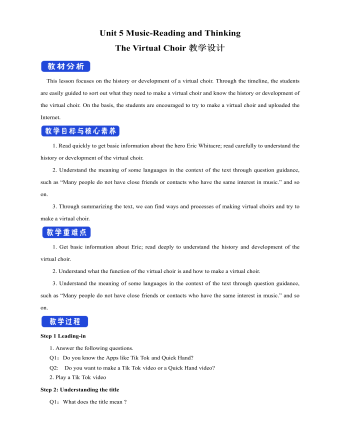
新人教版高中英语必修2Unit 5 Music-Reading and Thinking教案二
1. Get basic information about Eric; read deeply to understand the history and development of the virtual choir.2. Understand what the function of the virtual choir is and how to make a virtual choir.3. Understand the meaning of some languages in the context of the text through question guidance, such as “Many people do not have close friends or contacts who have the same interest in music.” and so on.Step 1 Leading-in1. Answer the following questions.Q1:Do you know the Apps like Tik Tok and Quick Hand?Q2: Do you want to make a Tik Tok video or a Quick Hand video?2. Play a Tik Tok video Step 2: Understanding the title Q1:What does the title mean ?Q2: Is the article a narration or exposition? Why? Q3: Can you change the title ? If you can, what is the title?Step 3: Scanning the whole text and getting the basic information1. Answer the following questions.Q1:Who came up with the idea for a virtual choir?Q2: Where did Eric studied the musical composition?Q3: What is his song?2. Find the main idea of each paragraph3. Deal with some new words.Step 4: Reading carefully to get detailed informationPara 1 How to make a virtual choir1. PreparationA. tools: a virtual camera; an Internet connectionB. hero/heroin: friends or some individuals who have the same interests2. Process
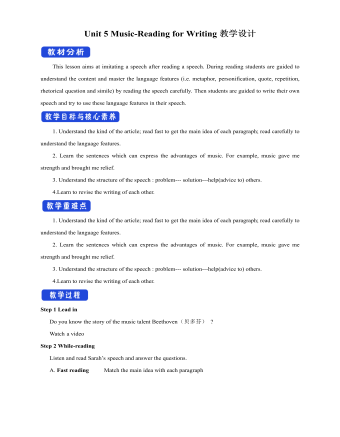
新人教版高中英语必修2Unit 5 Music-Reading for Writing教案二
The Internet celebrity Gao Yifeng. Years ago, he owned 5 companies and the staffs over 1,000, but during the economy crisis, he became nothing but debt. He was so worried that his hair became white overnight. There was a time when he wanted to killed himself. But after listening to the song Start Over by Liu Huan, he decided to cheer himself up. He started a steamed bun shop and gradually became a national chain shops. Now he became successful again.Walter Haddon said, “Music is the medicine of a troubled mind.” Music contains such a pleasant and inspiring force. Music gave him courage and bravery. When he listened to the song, it made his spirit fly like a kite in the wind. Music gave him strength and brought him relief. It was the rock I leant on to become strong and to get through those hard times. I hope none of us have to go through the same kind of suffering that he did. At the same time, we all go through various periods when we feel sad or alone. During those times, music can help us in the same way that it helped him. I hope we all will somehow begin to treasure music and make it a part of our life. Thank you for your listening !5.Revise your writing each other.Does he/she explain how music has changed his/her/someone else’s life?Are some of the rhetorical devices included and used properly ?Does he/she talk about how music makes him/her/someone feel?Is the first word in each sentences capitalised?Does he/she use correct punctuation ?
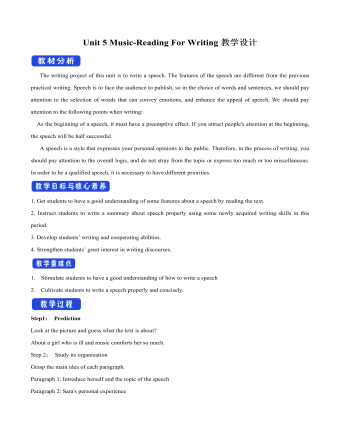
新人教版高中英语必修2Unit 5 Music-Reading For Writing教案一
(4)Now we have heard a number of outstanding speeches ... 我们已经聆听了许多精彩的发言……(5)Because we wanted the nations of the world, working together, to deal with ... 因为我们希望全世界各国团结起来去应对……(6)And if we do not act ... 如果我们不采取行动……(7)Now, I share the concerns that have been expressed ... 我也同意对于……表达的担心(8)Let us show the world that by working together we can ... 让我们告诉全世界,通过一起努力我们可以……(9)It is now time for us to ... 是时候我们……(10)And I have always wished that ... 我一直希望……(11)Thank you for letting me share this day with me.感谢你们和我共度这一天。实践演练:假如你是高中生李华,你校将举办一次以“音乐”为主题的演讲比赛,请你按照主题,写下你的演讲稿。注意:词数100左右。First of all, thank you for listening to my speech. My topic is: love music like love yourself.Music is like the air we need to maintain our normal lives around us. You can't imagine how terrible a world without music would be. Movies and TV shows have no music, only dry conversations and scenes; mobile phones only vibrations; streets only noisy crowds; cafes, western restaurants only depressed meals. What a terrible world it is!As a student, I hope we all can enjoy the fun brought by music in our spare time. Instead of just listening to music, we can even make our own music. Let's enjoy the fun of music!Thanks again for your attention!
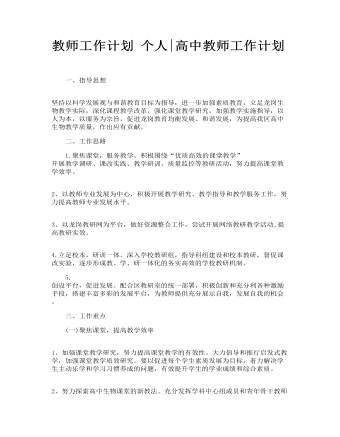
高中教师工作计划
1.聚焦课堂,服务教学。积极围绕“优质高效的课堂教学” 开展教学调研、课改实践、教学研训、质量监控等教研活动,努力提高课堂教学效率。 2、以教师专业发展为中心,积极开展教学研究、教学指导和教学服务工作,努力提高教师专业发展水平。 3、以龙岗教研网为平台,做好资源整合工作,尝试开展网络教研教学活动,提高教研实效。
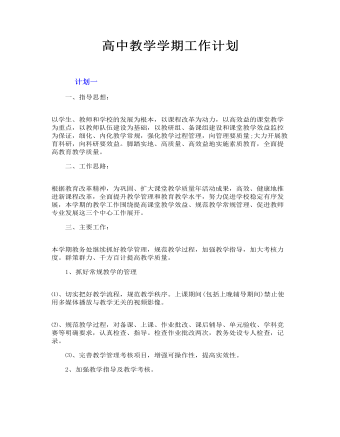
高中教学学期工作计划
三、主要工作: 本学期教务处继续抓好教学管理,规范教学过程,加强教学指导,加大考核力度。群策群力、千方百计提高教学质量。 1、抓好常规教学的管理 ⑴、切实把好教学流程,规范教学秩序。上课期间(包括上晚辅导期间)禁止使用多媒体播放与教学无关的视频影像。 ⑵、规范教学过程,对备课、上课、作业批改、课后辅导、单元验收、学科竞赛等明确要求,认真检查、指导。检查作业批改两次,教务处设专人检查,记录。
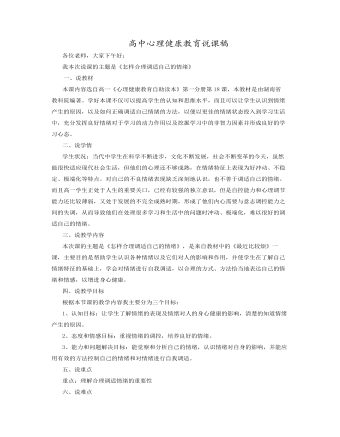
高中心理健康教育说课稿
二、说学情学生状况:当代中学生在科学不断进步,文化不断发展,社会不断变革的今天,虽然能很快适应现代社会生活,但他们的心理还不够成熟,在情绪特征上表现为好冲动、不稳定、极端化等特点。对自己的不良情绪表现缺乏深刻地认识,也不善于调适自己的情绪。而且高一学生正处于人生的重要关口,已经有较强的独立意识,但是自控能力和心理调节能力还比较薄弱,又处于发展的不完全成熟时期,形成了他们内心需要与意志调控能力之间的失调,从而导致他们在处理很多学习和生活中的问题时冲动、极端化,难以很好的调适自己的情绪。
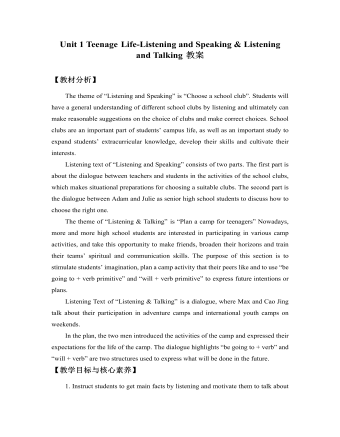
新人教版高中英语必修1Unit 1 Teenage Life-Listening and Speaking & Listening and Talking教案
Step 2 Listening and Talking1. The teacher is advised to talk with their new students about the related topic: Boys and girls, do you know some structures to talk about future activities? Talking about future activitiesWe’ll …I plan to …There’ll be …I hope to …We’re going to …2. After their small talk, the teacher can move on by playing the listening and solve the following task.Underline the expressions in the sentences below Cao Jing and Max use to talk about the future.We’ll learn useful skills.I plan to improve my spoken English.There’ll be students from different schools.I hope to make new friends.We’ll talk about teenage life.I’ll learn to make a fire.There’ll be students from different countries at the camp.There’ll be some experts there to show us how to live in the wild.We’re going to learn about wildlife.I’m going to give a speech.I think I’m going to enjoy the activities.I think we’ll have a lot of fun.3. Work in groups. Plan a youth camp.Teacher make the Ss think of ideas for the camp. And they can use the questions below to get started. And have the Ss present their ideas for a youth camp to the class.●What kind of camp is it?●Who will be there?●What will they do?●What will they learn?
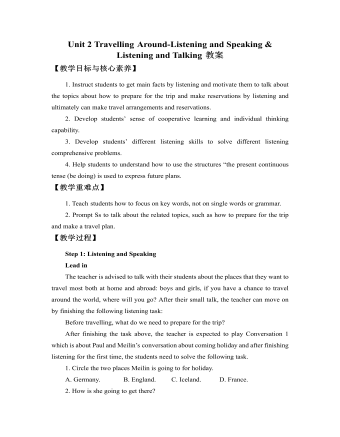
新人教版高中英语必修1Unit 2 Travelling Around-Listening and Speaking & Listening and Talking教案
【教学目标与核心素养】1. Instruct students to get main facts by listening and motivate them to talk about the topics about how to prepare for the trip and make reservations by listening and ultimately can make travel arrangements and reservations. 2. Develop students’ sense of cooperative learning and individual thinking capability. 3. Develop students’ different listening skills to solve different listening comprehensive problems.4. Help students to understand how to use the structures “the present continuous tense (be doing) is used to express future plans.【教学重难点】1. Teach students how to focus on key words, not on single words or grammar.2. Prompt Ss to talk about the related topics, such as how to prepare for the trip and make a travel plan.【教学过程】Step 1: Listening and SpeakingLead inThe teacher is advised to talk with their students about the places that they want to travel most both at home and abroad: boys and girls, if you have a chance to travel around the world, where will you go? After their small talk, the teacher can move on by finishing the following listening task:Before travelling, what do we need to prepare for the trip?
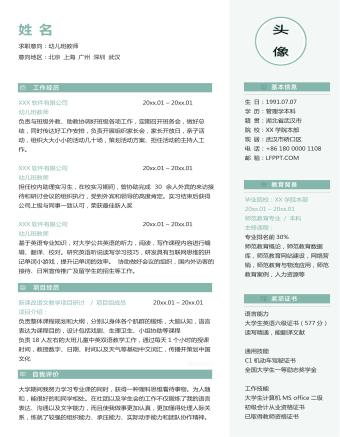
淡绿色英语外教幼儿班实习教师简历
XXX软件有限公司 20xx.01 – 20xx.01幼儿班教师负责与班级外教、助教协调好班级各项工作,定期召开班务会,做好总结,同时传达好工作安排,负责开展组织家长会,家长开放日,亲子活动,组织大大小小的活动几十场,策划活动方案、担任活动的主持人工作。XXX软件有限公司 20xx.01 – 20xx.01幼儿班教师担任校内助理实习生,在校实习期间,曾协助完成 30 余人外宾的来访接待和研讨会议的组织执行,受到外宾和领导的高度肯定。实习结束后获得公司上级与同事一致认可,荣获最佳新人奖
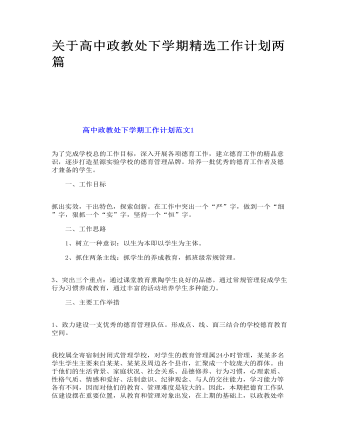
关于高中政教处下学期精选工作计划两篇
1、树立一种意识:以生为本即以学生为主体。 2、抓住两条主线:抓学生的养成教育,抓班级常规管理。 3、突出三个重点:通过课堂教育熏陶学生良好的品德。通过常规管理促成学生行为习惯养成教育,通过丰富的活动培养学生多种能力。
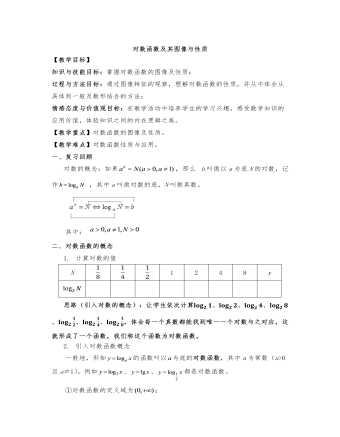
对数函数及其图像与性质高中数学教案
【教学目标】知识与技能目标:掌握对数函数的图像及性质;过程与方法目标:通过图像特征的观察,理解对数函数的性质,并从中体会从具体到一般及数形结合的方法;情感态度与价值观目标:在教学活动中培养学生的学习兴趣,感受数学知识的应用价值,体验知识之间的内在逻辑之美。【教学重点】对数函数的图像及性质。【教学难点】对数函数性质与应用。
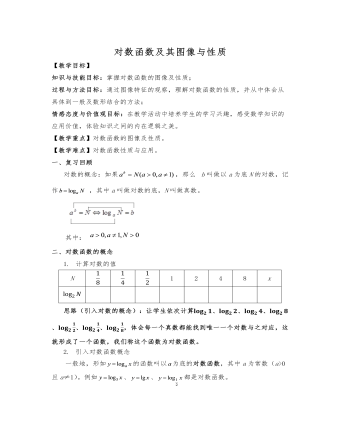
对数函数及其图像与性质高中数学教案
二、对数函数的概念1. 计算对数的值 N1248x 思路(引入对数的概念):让学生依次计算、、、、、、,体会每一个真数都能找到唯一一个对数与之对应,这就形成了一个函数,我们称这个函数为对数函数。

2026 马年新年手抄报模板 小学生元旦春节英文祝福主题素材
这是一张充满童趣的 2026 马年新年手抄报,整体以红、金为主色调,搭配活泼的彩色字体,瞬间拉满新春氛围。画面里,舞狮装扮的卡通娃娃抱着装满金元宝的福袋,旁边的 “福” 字钱袋、红灯笼、金鱼与烟花元素,把传统年味揉进可爱画风里。内容分为三大板块:“新年祝福语” 用中英双语送上 “新年快乐、万事顺遂” 的祝福;“元旦简介” 科普了公历新年的日期与全球庆祝方式;“新年目标” 则写下 “努力学习、多锻炼、友善待人” 的温暖期许,既贴合节日主题,又藏着满满的生活气息。
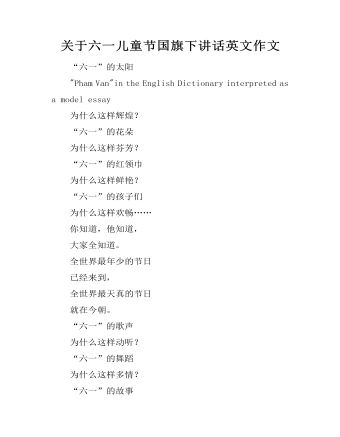
关于六一儿童节国旗下讲话英文作文
“六一”的太阳"Pham Van"in the English Dictionary interpreted as a model essay为什么这样辉煌?“六一”的花朵为什么这样芬芳?“六一”的红领巾为什么这样鲜艳?“六一”的孩子们为什么这样欢畅……你知道,他知道,大家全知道。全世界最年少的节日已经来到,全世界最天真的节日就在今朝。“六一”的歌声
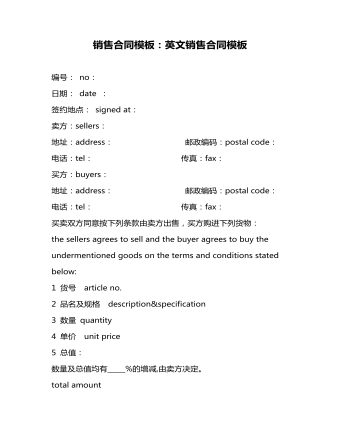
销售合同模板:英文销售合同模板
由于水灾、火灾、地震、干旱、战争或协议一方无法预见、控制、避免和克服的其他事件导致不能或暂时不能全部或部分履行本协议,该方不负责任。但是,受不可抗力事件影响的一方须尽快将发生的事件通知另一方,并在不可抗力事件发生15天内将有关机构出具的不可抗力事件的证明寄交对方。
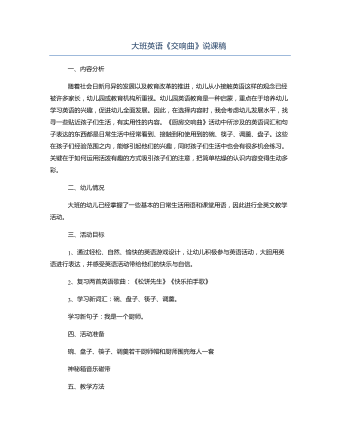
大班英语《交响曲》说课稿
二、幼儿情况大班的幼儿已经掌握了一些基本的日常生活用语和课堂用语,因此进行全英文教学活动。三、活动目标1、通过轻松、自然、愉快的英语游戏设计,让幼儿积极参与英语活动,大胆用英语进行表达,并感受英语活动带给他们的快乐与自信。2、复习两首英语歌曲:《松饼先生》《快乐拍手歌》3、学习新词汇:碗、盘子、筷子、调羹。学习新句子:我是一个厨师。四、活动准备碗、盘子、筷子、调羹若干厨师帽和厨师围兜每人一套神秘箱音乐磁带五、教学方法1、游戏法孩子生来是好动的,是以游戏为生命的。游戏化教学有着其他活动不能代替的功能和价值。英语与游戏的结合,能充分激起幼儿学英语的兴趣,密切师幼关系,尤其能提供给幼儿轻松自然愉快运用英语的机会。2、直接法全英文教学形式,直接培养幼儿简单英语思维以及表达习惯。3、重复法不断重复单词与句型,刺激幼儿印象,强化巩固记忆。4、赏识教育法鼓励与表扬幼儿的每一次进步,培养孩子们的兴趣,并帮助他们树立信心。六、活动过程1、问候
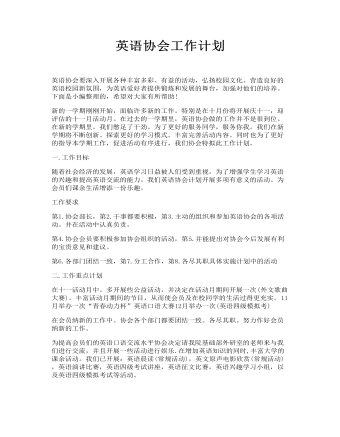
英语协会工作计划
二.工作重点计划在十一活动月中。多开展些公益活动,并决定在活动月期间开展一次(外文歌曲大赛)。丰富活动月期间的节目,从而使会员及在校同学的生活过得更充实。11月举办一次“青春动力杯”英语口语大赛12月举办一次(英语四级模拟考)在会员纳新的工作中。协会各个部门都要团结一致。各尽其职。努力作好会员纳新的工作。

高中新学期国旗下讲话稿
尊敬的各位老师、亲爱的同学们:早上好!我今天高中新学期国旗下讲话稿的题目是:革命传统精神代代相传“孩子们,喜欢过生日吗?”“因为生日有小礼物,是吗?”“喜欢过节吗?”“因为过节有压岁钱,是吗?”现在社会发展了,生活水平提高了.你们的生活也非常优越,甚至有些同学不用等到过生日,过节,平时就有属于自己的零花钱,但是对于过去的艰苦生活,你们了解吗?同学们,抬头看看用战士们的鲜血染成的五星红旗吧!透过鲜红的五星红旗,你是否又看到了在军阀铡刀前毫无惧色的刘胡兰;你是否又感受到了江姐在敌人酷刑下那撕心裂肺的痛楚;你是否又听到了英雄“为了胜利,向我开炮!”的豪迈呐喊。
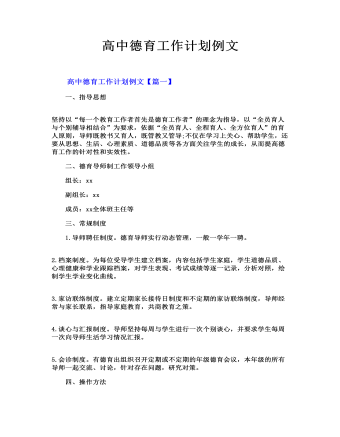
高中德育工作计划例文
1.导师聘任制度。德育导师实行动态管理,一般一学年一聘。 2.档案制度。为每位受导学生建立档案,内容包括学生家庭,学生道德品质、心理健康和学业跟踪档案,对学生表现、考试成绩等逐一记录,分析对照,绘制学生学业变化曲线。 3.家访联络制度。建立定期家长接待日制度和不定期的家访联络制度,导师经常与家长联系,指导家庭教育,共商教育之策。





















